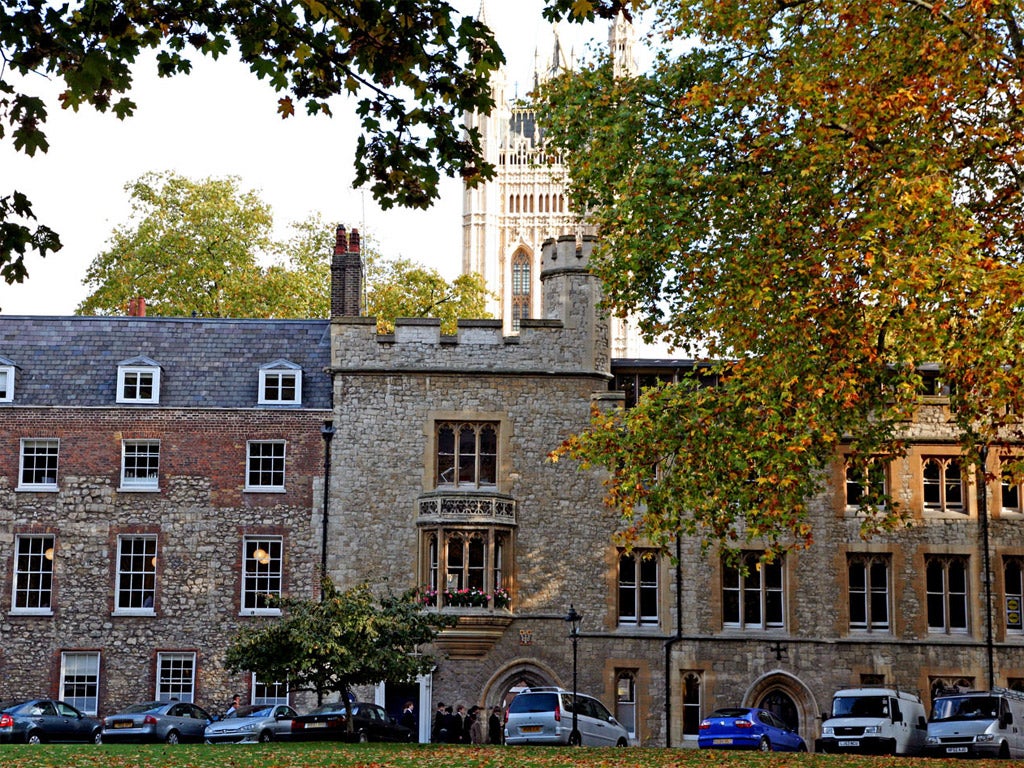Plan to open up top private schools to all
Political parties urged to fund scheme that would select on academic merit, not ability to pay

Your support helps us to tell the story
From reproductive rights to climate change to Big Tech, The Independent is on the ground when the story is developing. Whether it's investigating the financials of Elon Musk's pro-Trump PAC or producing our latest documentary, 'The A Word', which shines a light on the American women fighting for reproductive rights, we know how important it is to parse out the facts from the messaging.
At such a critical moment in US history, we need reporters on the ground. Your donation allows us to keep sending journalists to speak to both sides of the story.
The Independent is trusted by Americans across the entire political spectrum. And unlike many other quality news outlets, we choose not to lock Americans out of our reporting and analysis with paywalls. We believe quality journalism should be available to everyone, paid for by those who can afford it.
Your support makes all the difference.A radical plan to allow all children "open access" to many of Britain's top independent schools, regardless of their parents' financial backgrounds, was unveiled yesterday.
More than 80 private day schools – including Westminster, Manchester Grammar and City of London Boys' – have already pledged their support for the scheme. If given the go-ahead, it would allow more than 30,000 bright pupils from disadvantaged backgrounds to take up places in leading independent schools.
The proposal, in effect, would turn the schools into a mirror image of existing state grammar schools, offering places to the cleverest children based on academic merit, regardless of their background.
The plan was devised by Sir Peter Lampl, the chairman of the Sutton Trust education charity, which is campaigning to get more pupils from poorer backgrounds into top schools and universities.
He is holding discussions with the three main political parties with a view to getting a commitment to include it in their 2015 election manifestos.
Speaking to the Headmasters' and Headmistresses' Conference (HMC) in Belfast yesterday, Sir Peter said: "We got rid of academic selection in the 1970s and this has simply been replaced by social selection.
"Put simply it is very difficult for children from less privileged backgrounds to move up in society and it is more difficult than it used to be. Things have got worse."
Under the scheme, schools would operate an "open access" policy in which all pupils would be selected on academic rather than economic merit. It has already been tried out at Belvedere, a girls' school in Liverpool where children from poorer families had their tuition funded through Sir Peter's charity. As a result, 30 per cent were offered free places and a further 40 per cent received some financial support.
Sir Peter conceded that the success of the expanded scheme hinged on securing government finance for it but argued that the cost of subsidising places was less than it would have been to pay for a state education for all of the pupils selected.
He argued that, while the Labour Party appeared to be "hung up" about selection in schools, his scheme would not create any more selective places than existed in the system at present. "We are not proposing to extend or increase selection," he added. "Open access would simply democratise existing selection."
Sir Peter said that, once the go-ahead had been given to 80 schools signed up for a pilot scheme, many others would want to follow suit.
If the "open access" intake to these 80 schools was similar to that at Belvedere, he said, the Sutton Trust had calculated that the scheme would cost £180m a year.
Gove's policies 'are incoherent and too rushed'
A senior Tory attacked Michael Gove's school reforms as "incoherent", saying the Education Secretary should "stop taking the urgency pills and recognise the need to slow down".
Graham Stuart, chairman of the Commons Education Select Committee, told the Headmasters' and Headmistresses' Conference in Belfast that he thought plans to abolish GCSEs in England, and to introduce a new English baccalaureate by 2015, were "ill conceived".
Mr Gove's rapid agenda for change had led to "incoherence, with urgent timelines which can't be done", Mr Stuart said. "Stop changing things all the time."
Mr Stuart, the MP for Beverley and Holderness, said that ministers appeared not to be listening to the voices of education professionals and, as a result, "[government policy] doesn't seem very coherent". He added: "If there is clear thinking going on in the department, it has so far escaped the chairman of the Education Select Committee."
Richard Garner
Join our commenting forum
Join thought-provoking conversations, follow other Independent readers and see their replies
Comments